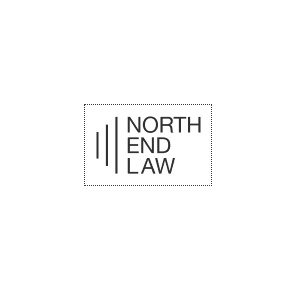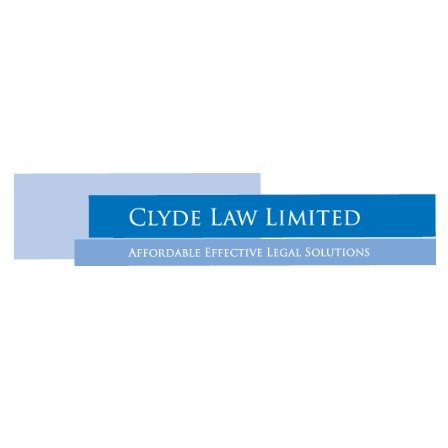Best Business Registration Lawyers in Hamilton
Share your needs with us, get contacted by law firms.
Free. Takes 2 min.
List of the best lawyers in Hamilton, New Zealand
About Business Registration Law in Hamilton, New Zealand
Business registration in Hamilton, New Zealand, involves officially listing a business entity on the New Zealand Companies Register. This process ensures that the business is recognized by the government and can operate legally. The Companies Office is the primary body that handles these registrations. In addition to company formation, business registration may also involve registering your business for tax purposes, such as GST, and ensures that the business complies with local government regulations.
Why You May Need a Lawyer
There are several scenarios where you might require legal assistance when registering a business in Hamilton:
- Understanding Legal Structures: Deciding between different business structures (such as sole proprietorship, partnership, or corporation) can be complex, and a lawyer can help you choose the most beneficial one for your circumstances.
- Compliance with Regulations: A lawyer can ensure that your business complies with all the local and national regulations, avoiding potential legal issues in the future.
- Drafting Agreements: If you're going into business with partners, a lawyer can draft partnership agreements to protect your interests.
- Licensing and Permits: Certain businesses may require additional licenses or permits. Legal advice can ensure that you obtain everything necessary to operate legally.
A lawyer can provide valuable guidance at every stage of the business registration process, safeguarding you against potential legal pitfalls.
Local Laws Overview
When registering a business in Hamilton, you should be aware of several key local laws and regulations:
- Companies Act 1993: Governs the formation, operation, and dissolution of companies in New Zealand.
- Fair Trading Act 1986: Ensures businesses operate honestly and fairly, prohibiting misleading or deceptive conduct.
- Privacy Act 2020: Regulates how businesses collect, store, and use personal information from clients and customers.
- Resource Management Act 1991: May impact businesses that require specific environmental considerations, such as building a new facility.
Understanding these laws is crucial, and compliance is necessary to avoid legal complications and ensure smooth operations.
Frequently Asked Questions
What is required to register a business in Hamilton?
To register a business, you need to choose a business structure, obtain a New Zealand Business Number (NZBN), register with the Companies Office, and register for tax purposes.
How long does it take to register a business?
The registration process can typically be completed within a few working days, provided all necessary documentation is in order.
Can I register as a sole trader in Hamilton?
Yes, registering as a sole trader is one of the simplest forms of business structures you can choose in Hamilton.
Do I need to register for GST when I start my business?
If your business turnover is expected to exceed NZD $60,000 in any 12-month period, you must register for GST.
How much does it cost to register a business?
The registration fee varies depending on the type of business structure you choose, but generally, it is a modest fee payable to the Companies Office.
Do I need a business license to operate?
Some businesses may require additional licenses or permits depending on the industry and activities; consulting with a lawyer can help determine specific requirements.
What is the role of the Companies Office?
The Companies Office manages business registrations and maintains the official register of companies in New Zealand.
Can a foreigner register a business in Hamilton?
Yes, foreigners can register a business in New Zealand, but there may be additional requirements or considerations involved. Legal advice is recommended.
What happens if I don't register my business?
If you do not register your business, you may risk penalties and legal action, and your business will not have legal recognition.
Are there annual obligations after registering a business?
Yes, businesses must file annual returns and comply with tax obligations, amongst other regulatory requirements.
Additional Resources
Here are some resources that can help with business registration in Hamilton:
- Companies Office: The primary government agency responsible for business registration and maintenance of the Companies Register.
- Inland Revenue Department (IRD): Provides guidance on tax obligations related to business operations.
- Business.govt.nz: Offers resources and tools for new businesses, including guides on compliance and registration.
- Hamilton City Council: Can provide information on local regulations, zoning laws, and permits that may impact your business.
Next Steps
If you're considering registering a business in Hamilton and believe you need legal assistance, consider these steps:
- Consult a Lawyer: Seek out a lawyer experienced in business law to discuss your specific needs and circumstances.
- Gather Necessary Documents: Ensure you have all required documents in order, such as identification, proof of address, and any relevant business plans.
- Schedule a Meeting: Meet with your lawyer to discuss your business goals and get advice on the best legal structure and compliance matters.
- Proceed with Registration: Your lawyer can guide you through the registration process with the Companies Office.
Starting a business is a significant step, and securing the right legal advice can pave the way for successful outcomes.
Lawzana helps you find the best lawyers and law firms in Hamilton through a curated and pre-screened list of qualified legal professionals. Our platform offers rankings and detailed profiles of attorneys and law firms, allowing you to compare based on practice areas, including Business Registration, experience, and client feedback.
Each profile includes a description of the firm's areas of practice, client reviews, team members and partners, year of establishment, spoken languages, office locations, contact information, social media presence, and any published articles or resources. Most firms on our platform speak English and are experienced in both local and international legal matters.
Get a quote from top-rated law firms in Hamilton, New Zealand — quickly, securely, and without unnecessary hassle.
Disclaimer:
The information provided on this page is for general informational purposes only and does not constitute legal advice. While we strive to ensure the accuracy and relevance of the content, legal information may change over time, and interpretations of the law can vary. You should always consult with a qualified legal professional for advice specific to your situation.
We disclaim all liability for actions taken or not taken based on the content of this page. If you believe any information is incorrect or outdated, please contact us, and we will review and update it where appropriate.

















